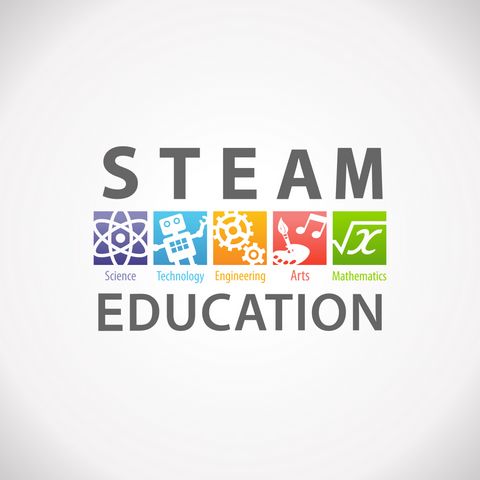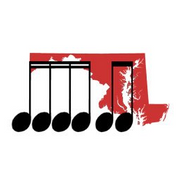Embracing STEAM Education as an Expansion of STEM

STEAM is an educational movement that engages students from preschool through college and beyond in an integrated learning approach, now officially recognized nationally as part of Common Core Standards along with Science, Technology, Engineering, and Mathematics, i.e. STEM plus the Arts. The Standards, implemented both on the national individual state levels, are an essential component to any high-quality STEAM program. Initially, it began as a movement, championed by the Rhode Island School of Design (RISD) to place Art + Design at the center of STEM, and widely adopted by institutions, corporations, and individuals. It is about inspiring students to “think creatively outside the box” to solve problems using the tools provided to them. Whereas STEM education was regarded as a huge innovation in integrated learning theory and practice in the 20th century, STEAM is the next generation Science Standards, Language Arts and Literacy, aligned with the Visual and Performing Arts Standards in preparing students to effectively face the challenges in the 21st century. It seeks to add humanity to STEM, acknowledging that it is okay to not always be perfect—to learn by exploration and experimentation. Students are encouraged to ask questions, to be collaborative and innovative through Core standards. They are taught to apply concepts by designing “hands-on” projects to demonstrate their understanding of Science, Technology, Engineering, Math, Language Arts, Literacy, and Art, with emphasis placed on the ‘wonder of art and science in human endeavors.’
Although the language of the individual States Common Core Standards differ somewhat, there is an overall consensus, and it would be helpful for us at this time to review our Initiative in Maryland which focuses on College and Career preparation and readiness. The following is a listing of our Content Standards that reflect a wide range of topics that demonstrate the breadth of Maryland’s emphasis on inclusion: English Language Arts/literacy, Mathematics, Science, Social Studies, Disciplinary Literacy, English for Speakers of Other Languages, Environmental Education, Fine Arts, Health, Personal Financial Literacy Education, Physical Education, School Library Media, STEM, Technology Education, Technology Literacy for Students, World Languages.
Although Arts Education is taken very seriously in Maryland and Music Programs abound throughout the state, STEAM Education per se is slower to be recognized and accepted here on its own merits as compared to other initiatives around the country. Close to home, for instance, in our Nation’s Capital Washington, DC Public Schools, there have a Pilot Program in Partnership with the Museum of Science Fiction. The Primary Objective is to develop project-based learning activities, with measurable outcomes. Lessons engage students in critical thinking. Students will compare Science Fiction with Science Fact through STEAM programming that uses Common Core and Next Generation Science Standards. The educational programming uses Science Fiction to foster a deeper interest in Science and the Arts. Initially, interest in the project was sparked by the Museum’s Education Mission: to share and use Science Fiction as a way to inspire imagination, and motivate learning in Science, Technology, Engineering, the Arts, and Math. Imagination and education are central elements of the Museum. Visitors to the Museum will be able to observe and experience Science Fiction as a bridge between Art and Science and develop a new appreciation of imagination as an essential component in the education process. Children, especially, will learn more about creating disciplines, and how they affect the human experience.
In this climate of economic uncertainty, America is once again turning to innovation as a way to ensure a prosperous future. STEAM Education is the wave of the future and the tip of the iceberg.
Dr. Joan Spicknall is Director of The Suzuki Music School of Maryland, Inc. and can be reached by email at director@suzukimusicschool.com or by phone at 410-964-1983.
About the Business
Have a question? Ask the experts!
Send your question

